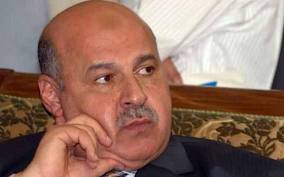
Since the beginning of the Egyptian revolution, Iran has always tried to flirt with Egypt and associate its aspirations with the Arab spring. Iran explained the Arab spring in terms of an Islamic awakening where the masses are rising against tyrants, similar to Shi’a discourses that venerate struggles of the Mustazafin, the weak and oppressed against the Mustakbirin, the arrogant and oppressors.
Only a few months ago, the Iranian government invited fifty Egyptian university professors to a book fair in Iran which alarmed some political factions and on another occasion some of the families of the revolution martyrs were invited to Iran and honoured for their loved ones’ sacrifices.
In early May of this year, there was a Huseineya, a Shi’a place of worship, opened for religious practice and propagation. It was soon closed down by authorities after a unanimous consensus among all Islamists and formal heads of Azhar on the need to block any Shi’a missionary attempts in Egypt, as they deemed the Shi’ite creed as corrupt. This has shocked Iran, however. Iran does not stop trying to get on Egypt’s better side.
Iranian Fars News Agency was going to be sued by the presidential office over allegations of fabrication of an interview with the president where Morsy supposedly remarked overly positive comments to the Mullah regime (Fars also produced a fictive interview in the past with Mohamed El Baradie when he was head of the Atomic Agency).
After Morsy recently welcomed the invitation to the Non-Aligned Movement Summit Conference in Tehran, Iran went as far as calling upon those close to it in Egypt to stop criticising the Muslim Brotherhood. Iran even went as far as condemning the revolution wannabe of 24 August.
“Iran, Egypt to Offset S. Arabia, US in Middle-East” was a recent news headline on Fars News Agency which demonstrates the wishful thinking that Iran has for the new Egyptian approach. One who follows Iranian movements in Egypt will know that Iran is very desperate to have positive diplomatic relations with Egypt. What was previously presented above is only a recent sample to prove so.
The positive Egyptian response to the invitation comes as an attempt to balance power in the region and stabilise it. Morsy will be visiting China before heading to Iran. Egypt at this point is simply trying to diversify its relations with global and regional powers. China in general does not have strings attached on trade and does not concern itself with local politics unlike the IMF, World Bank and the West which generally have conditions for assistance.
During the latest meeting of the Organisation of Islamic Conference in Saudi Arabia, Morsy suggested that Turkey, Saudi, Iran and Egypt create a contact group to discuss possible ways of moving ahead with the turmoil in Syria. All sides welcomed the Egyptian initiative.
Perhaps it did not go down well with the global powers involved that will be marginalised, but it is the first initiative which includes all regional direct players on the ground aside from Egypt. The neutrality of Egypt is more likely to enable it mediate between the hard-line positions of all nations. Egypt, without a doubt, is going to act upon this initiative in the coming Non-Aligned Movement summit in Tehran.
The summit of the 118 member countries being conducted in Iran is defiantly good for Iran as it pushes it out of global isolation. Furthermore, it is a pretext for better standing in the region and more so against Israel which has been talking for years about a possible military strike against Iran’s nuclear installations.
Egypt, however, should not be seen as going to open up its arms entirely for Iran. The relation comes strictly in terms of realpolitik where only mutual interests play a role. In Egypt, Islamists have made this very clear, including prominent sheikhs associated with the Al-Nour party. Their concerns are not only over Shi’ite ideology which are deemed fundamentally antagonistic to Islam, but also over the oppression of Iran to its Sunni minority and its implicit condoning of similar measures in Iraq. This is aside from the wider context which does not put Iran favourably in the Arab street after its blatant support of bloody Syrian President Bashar Al-Assad.
Iran, however, is unlikely to lose Syria for nothing. A political Egyptian stance which does not wish to isolate Iran or consider it an enemy is certainly a substitute that Iran will be happy with and will probably make Iran accept the reality that its influence in Syria will considerably shrink, if not to nothing, and very soon. The summit will certainly be historic for Iran. For now, let the summit happen and let us see what’s next.


